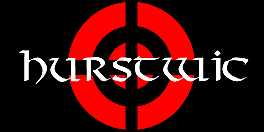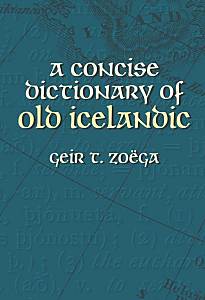
|

|
Old Norse Language Boot Camp
an intensive 2-day introduction to Old Icelandic,
the language of the sagas
In past years, Hurstwic offered a intensive introduction to the Old Norse language. Registration and running the bootcamp has been taken over the instructor, and Hurstwic will no longer be an active participant. Please contact us for more information. The next session is not scheduled at this time. The information below from previous years will give you an overall impression of the nature of the bootcamp.
|
|
Have you ever wanted to read the sagas, or the eddas, or other Viking-age literature in the original language? Anyone with more than a passing interest in the Viking age should bypass the translator middleman who puts his own stamp on the material, and instead, go directly to the original. |
|
|
|
We offer a two-day introduction to Old Icelandic. Students can expect to go from having no knowledge of the language to being able to use a dictionary, grammar chart, and other references to work out the meaning of passages from the original saga texts. Pre-COVID, our classes were conducted in-person at Worcester State University. In 2021, we met on-line and attempted to replicate the in-person experience, using a combination of sessions with the entire class present, together with breakout sessions with small groups of students working collaboratively, and with asynchronous lecture/presentations that can be viewed either before the session or during the breaks. We will make a decision about how the next session will be run closer to the event. |
|
|
|
For this session, we will be translating passages from the Snorra Edda. Snorri Sturluson wrote this book to serve as a primer for young poets of his day. We will be focusing on prose passages from Gylfaginning, the first section of the book. These passages tell stories about the Norse gods and goddesses, and of the beginning and end of the world. They form the basis for much of our knowledge of the Norse mythology. |
|
 |
No other language knowledge is required, but experience in learning other languages, or extensive knowledge of modern English grammar will be helpful. Students should have available a paper copy of Zoega's book, A Concise Dictionary of Old Icelandic. A inexpensive paperback reprint is available for under $20. The book has been published in many editions, and used copies of earlier editions are available for even less. There are on-line editions as well, but we recommend that students have a paper copy at their disposal. Other printed materials, such as grammar guides, a bibliography, and sample saga texts, will be available on-line. Students may want to consider printing a hard copy of some of those materials, such as the grammar guide, in advance. An excellent edition of Gylfaginning is available at no charge on-line from the Viking Society for Northern Research, and students may wish to consider downloading this PDF, although it is not required for the course since you will be provided with the excerpts we'll be translating in the class. Similarly, there is also a glossary available with an index of names, which may be handy since it is more extensive than the glossary you will receive in class. |
|
|
|
Class time is divided between lecture/presentations with all students present, and small group collaboration in breakout rooms. The lectures introduce students to the funamentals of grammar, and to the use of the dictionary and grammar guides. But for most of the session, students will work in small, collaborative groups (right) to translate saga passages and then to present their translations (left) to the whole class for further discussion and refinement. It is our intent to replica on-line as much as possible the collegial atmosphere of the in-person experience. Additionally, there will be presentations on the a variety of topics related to the sagas and eddas, including: the society of saga-age Icelanders; the poetry of the sagas; the locales of the saga passages we are translating; the manuscripts that have preserved these stories for us to read today; and more. |
|
|
The instructors for the next session will be Amy West and William R. Short. Amy has taught the bootcamp for the last few years. She holds a MA in Medieval Studies from the University of Connecticut, and is now working towards a masters degree in Applied Linguistics at UMass Boston. She currently runs the Hurstwic Old Norse Reading and Study Group. William is the manager of Hurstwic, LLC, and is an independent scholoar and the author of the book Icelanders in the Viking Age. He has taught university-level courses on the sagas in Iceland. |
|
|
The fee for the class is yet to be determined and must be paid in advance when you register and reserve your place. When we set a date, you may register on-line from this page. For more information, contact us at Hurstwic. Cancellation policy: We understand that things can happen, and if you cancel more than a week in advance of the class, we will gladly refund the full registration fee. After that, things get messy. If we have a student on the waiting list to take your place, we will gladly refund your registration fee. Otherwise, it it will be decided on a case-by-case basis. For more information, contact us at Hurstwic. |
|
|
Students who complete the course will be in a good position to join the on-going Hurstwic Old Norse reading and study group, which meets on-line monthly. For more information, contact us at Hurstwic. |
|
|
|
|
|
|
|
|
©2014-2026 William R. Short |